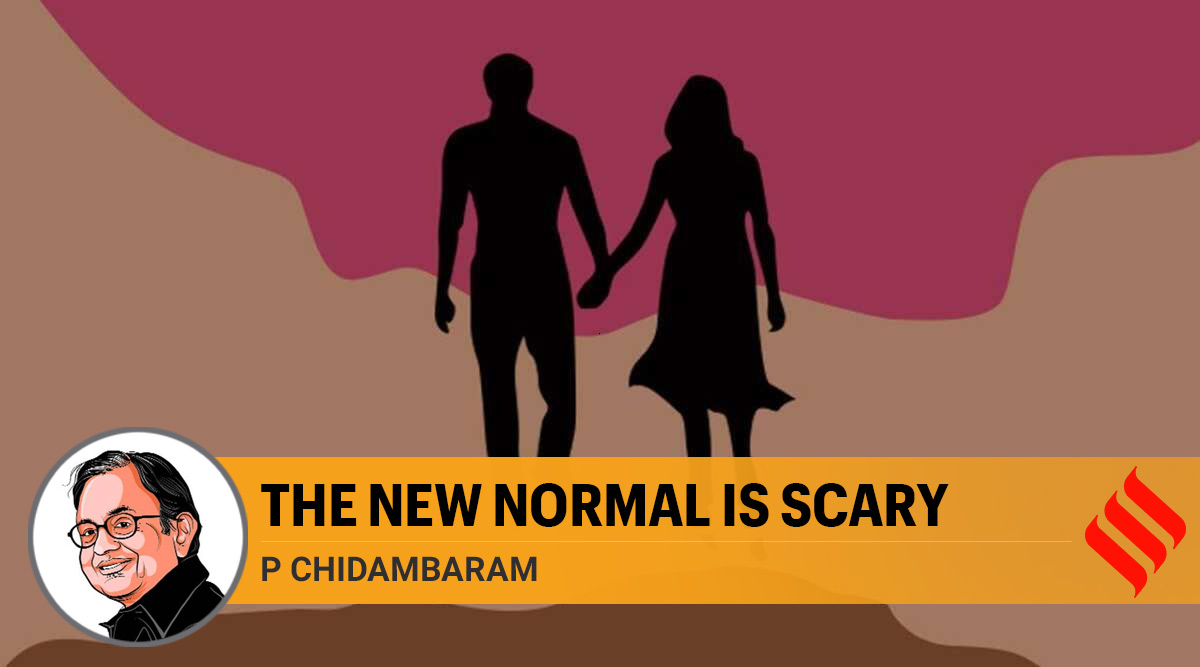The most rampant crime in UP is two young people falling in love and marrying! The ‘new’ normal for UP may become the new normal for India. That is scary.
Change is the law of nature. India, today, is not the India of the 1200s or the 1600s, it is not the 17 per cent-literate India when it attained Independence in 1947, it is not the India that swore by the State ‘occupying the commanding heights of the economy’.
One change can dramatically alter the course of a country. In 1991, Dr Manmohan Singh, as Finance Minister, did what until then was unthinkable. He abolished nearly all requirements for licences and permits. As Commerce Minister, I announced the new Foreign Trade Policy that started with the unprecedented (for India) declaration that ‘Imports and Exports shall be free’. Along with the two-step devaluation, the three policy announcements set the country on a new and irreversible economic direction.
Some changes happen over a period of time and are noticed only when the change gathers a critical mass. There are many examples: can anyone identify the date when the ubiquitous STD/ISD/PCO boards vanished? Or the date when listeners stopped tuning into All India Radio (or Aakashvani) to ‘listen to the news’? Or the date when every college-going girl, even in the conservative South, abandoned the half-sari and switched to a pair of jeans or a salwar-kameez?
Surge of Pride
Every change ushers in a new normal. Some new normals are uplifting. When 17 per cent of Board positions in listed companies are occupied by women; when an India-issued credit card payable in rupees is accepted in every foreign country; when one can dial and speak to any one in the world without going through the agony of ‘booking a trunk call’; when one can buy a car, truck or two-wheeler on EMI; when one can order food to medicines to clothes online and have the goods delivered at one’s door; when one can buy medical insurance and recover most of one’s expenses of hospitalisation or surgery; when sportspersons from rural India fill many places in the Indian cricket team; and when Indian origin executives head Google, Microsoft, IBM, Adobe, Nokia, Cognizant, MasterCard, Xerox and Reckitt Benckiser, there is a surge of pride in our hearts.
Some new normals make one uncomfortable. For example, I am not yet totally convinced that courts should become virtual courts and conduct all hearings through video. Routine applications and minor cases may be heard in virtual courts, but when major questions of law or complex facts are required to be argued and analysed, there is no substitute for a physical hearing. Eye contact of the lawyer with the judge is crucial. And if the court is a multi-member bench, the body language of the judges affords valuable guidance to the counsel.
Chilling Facts
Some other new normals send a chill — of anxiety or fear or desperation. The new normal in India appears to be that —
– the Prime Minister will complete two terms as head of the government without addressing a single press conference;
– the right to speak in Parliament or at an all-party meeting will be controlled (and denied) by a finger on a button that will ‘mute’ the microphone;
– a senior bureaucrat will openly speak of “too much democracy” and will not be admonished;
– the Special Marriage Act that permits inter-faith marriages will be repealed by stealth and replaced by a law that will punish the man among the inter-faith couple;
– the government by the majority of elected legislators will turn into majoritarian rule;
– the media (or the bulk of it) will be taken over or tamed into submission by the ruling party;
– the institutions created to act as watchdogs will be hollowed out by leaving vacancies unfilled or by appointment of loyal servitors;
– some are more equal than others under law and in the access to justice;
– election contributions will be controlled and directed to the ruling party;
– non-government and non-profit organisations will be suppressed or driven out of the country;
– investigation agencies and anti-sedition laws will be used to intimidate and incarcerate political adversaries, social activists, writers and poets; and
– monopolisation of economic power will be encouraged and actively supported.
Are you Proud?
Read all of the above examples in one go, discount some adjectives as biased, place your hand on your heart, arouse your conscience and ask yourself the question: am I proud of the ‘new’ normal to which my country is heading?
Take the UP ordinance against the so-called love jihad that was promulgated on November 28. Within 11 days, five cases were registered. In one case, the girl’s family told the police that the two families had resolved the matter, the girl had married another boy and the family had not filed a complaint. Yet, an FIR was registered against the boy. In another case, following an FIR and a non-bailable warrant, the police threatened to attach the property of the boy’s family if he did not respond to the police’s summons. One can conclude that the most rampant crime in UP is two young people falling in love and marrying! Hence it is engaging the attention of the Chief Minister and the entire police force, more than the growing number of cases of murder, rape, assault or theft to which the people are apparently accustomed as ‘normal‘ in UP.
The ‘new’ normal for UP may become the new normal for India. That is scary.
Source: Read Full Article


